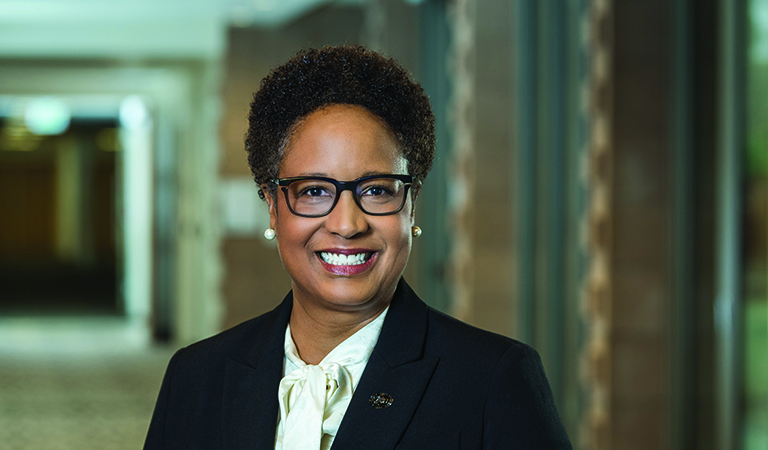Harvey Mudd Joins College Presidents for Civic Preparedness
April 23, 2024
Harvey Mudd College President Harriet B. Nembhard has joined with 60 other college presidents from across the country in a new initiative aimed at advancing civic education.
Through College Presidents for Civic Preparedness, participating presidents, including Hiram Chodosh of neighboring Claremont McKenna College, are committing to a set of priorities that support civic education. The initiative was designed by the presidents and convened by the Institute for Citizens & Scholars, a nonprofit that cultivates talent, ideas and networks that develop young people as effective, lifelong citizens.
“Harvey Mudd College has been increasing its civic learning and engagement programming over the past several years, through the hard work of our Office of Civic and Community Engagement, as well as our STEM & Social Impact: Climate Change course,” said President Nembhard. “We are looking forward to collaborating with other colleges in this important work and further expanding upon our efforts.”
“Higher education has a responsibility to provide students with critical civic skills and knowledge to participate effectively in our constitutional democracy,” said Rajiv Vinnakota, President of the Institute for Citizens & Scholars.
The priorities set by College Presidents for Civic Preparedness include preparing the next generation of well-informed, productively engaged, and committed citizens; defending free expression, civil discourse and critical inquiry as essential civic norms; and increasing thoughtful engagement and better understanding by students for the effective functioning of our democracy.
Harvey Mudd’s participation in the initiative as a liberal arts STEM college will be particularly meaningful. Recent events have emphasized the vital importance of incorporating STEM expertise into discussions and decision-making processes. Examples such as effectively formulating policies to address climate change, managing public health crises like the COVID-19 pandemic, and regulating emerging technologies illustrate the positive outcomes that result from integrating scientific knowledge. The better the college can increase its capacity to prepare students to be active and engaged citizens advocating for science, the more impact it will have in ensuring that scientific evidence informs decision-making and research applications in the service of humanity.
The participating presidents will meet regularly for peer learning and the exchange of information, ideas, practices and tools, including on such topics as hosting speaker series that center diverse viewpoints and designing student programming around constructive dialogue. They will also share resources designed for faculty and create opportunities for shared advocacy and public outreach on civic preparedness in higher education.
